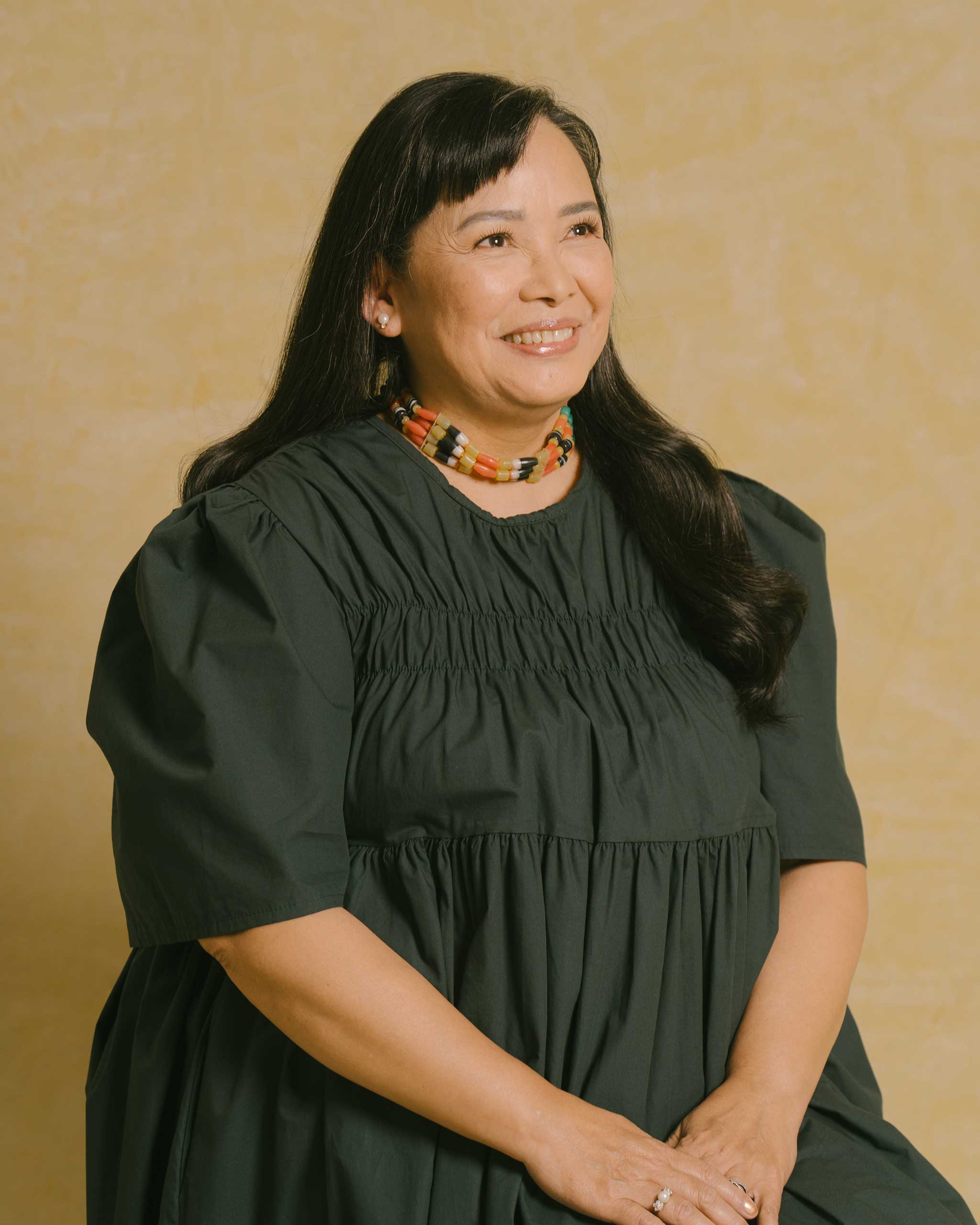Joji Pantoja wears DDDaily dress; Maryam Nassir Zadeh shoes. Photo by Kim Santos, styled by MJ Benitez, hair by Patty Inojales, makeup by Apple Fara-on
Vogue Philippines celebrates International Women’s Day through “Raising Hope,” in a call for nominations of inspiring women. In Mindanao, Joji Pantoja is making an impact through Coffee for Peace, an organization dedicated to economic empowerment and peacebuilding.
Nominated by L’nielle Cajigas
Peace, as simple as it sounds, takes years of hard work to build. When we think about building peace, where do we even begin? For Felicitas “Joji” Pantoja, the answer began by addressing the most basic of needs. “If we talk about peace and the people are hungry and because they are displaced, they wouldn’t want to listen about peace but more of food,” she says. With this line of thinking, Pantoja established Coffee For Peace, a social enterprise dedicated to economic empowerment and peacebuilding within indigenous and rural communities.
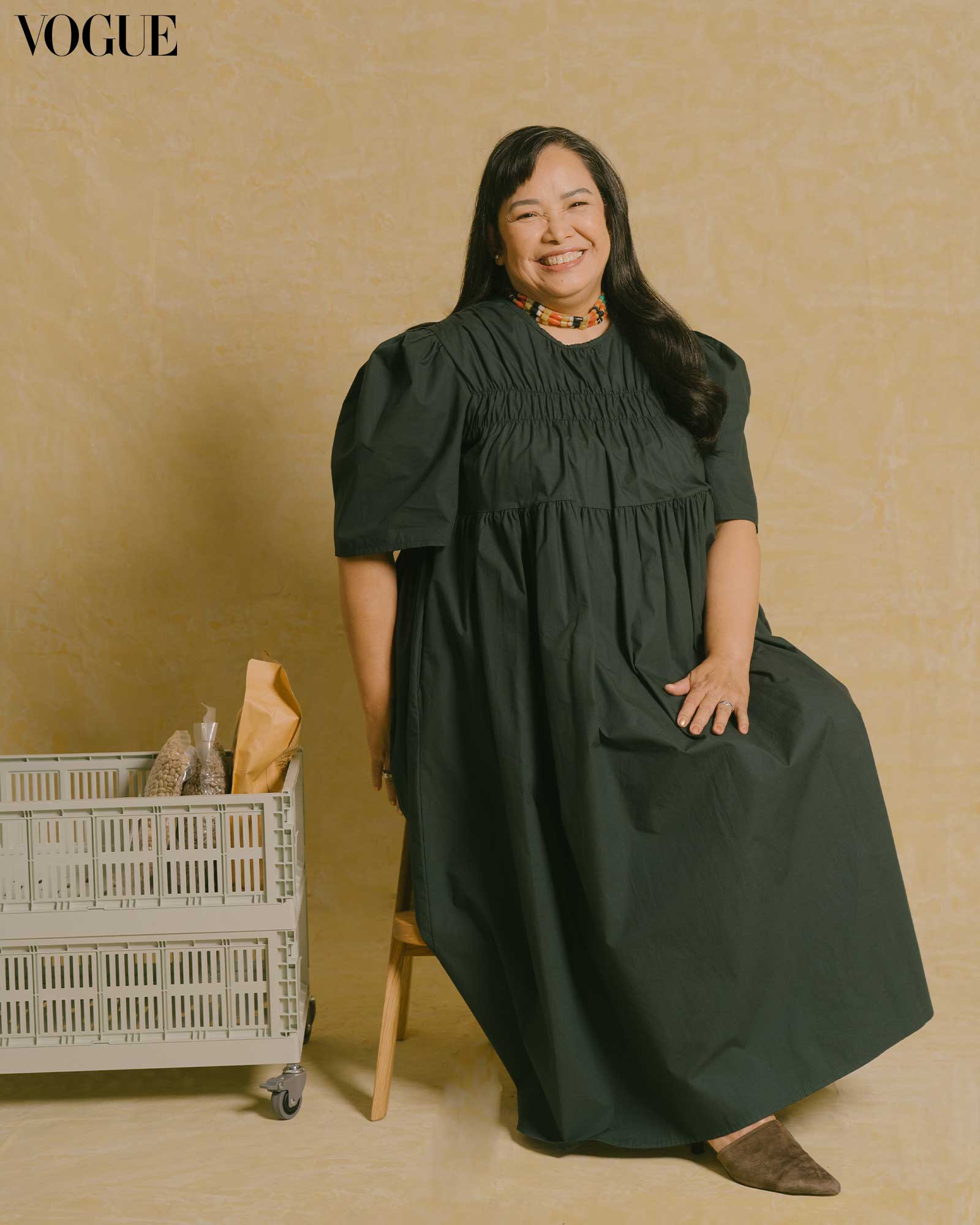
Using coffee as a vehicle for the message of peace, Coffee For Peace has made two conflicting parties work together peacefully. “The big corporation has a banana plantation in the ancestral domain. Of course, the tribal communities think that they are being poisoned by the fertilizers being used by this big corporation,” Pantoja narrates. “They have been fighting for many years until one time two of the Talaandig tribe said that they were angry at that big corporation. We thought to ourselves if only we can talk to that person and tell them what they’re doing.”
It was then that Pantoja’s path would cross with the owner of that same corporation. Driven by the desire to build peace, Pantoja was hired to be a consultant to train their staff management on peace and reconciliation. Bringing the two parties together, Pantoja was able to mediate: “We put them together and they had a peace pact. The corporation said that they would pay for the trees that have been cut because of the plantation. That they would pay for the water passage and help develop their livelihood. And the tribal community said yes, but they want more,” she shares.
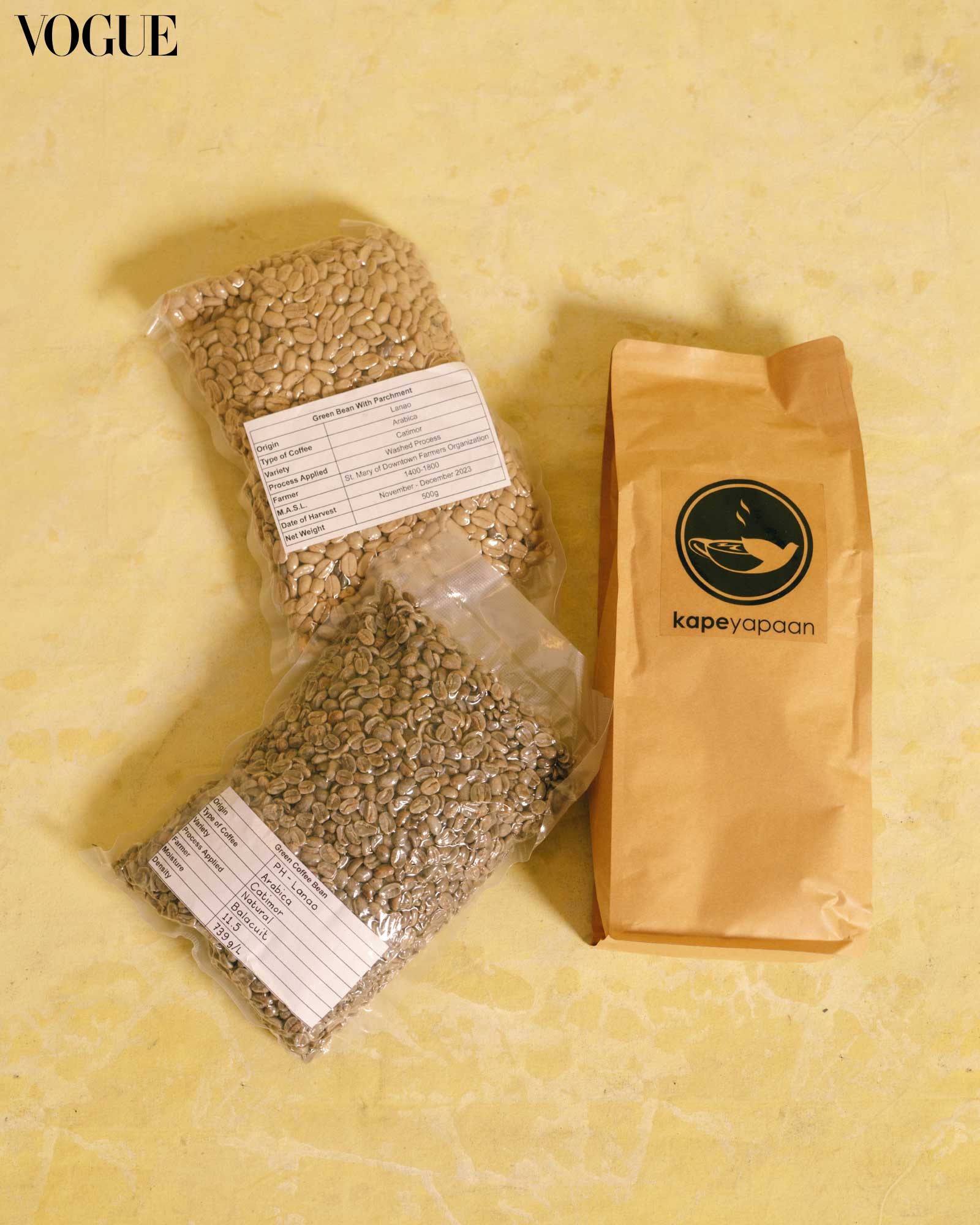
In addition to supporting the community’s livelihood and environment, the corporation also began offering scholarships to support their education. “They now have two lawyers, two engineers, one in pharmaceuticals, and one teacher,” she says. “Last week, we celebrated the Moro IP settler’s kinship at the Talaandig tribe in Bukidnon. The leader now is the owner’s daughter, who attended, and the lawyer is the one who’s leading the commemoration of the kinship. It’s now past the second generation. I said, ‘This is sustainable,’ because they have captured the vision of peace and reconciliation.”
Sharing coffee
Much of the social enterprise’s economic empowerment and peacebuilding activities hinge on producing a good cup of coffee. “They will only talk about peace if the coffee is good. If the coffee is not good, they will leave the store, and they will say, ‘Oh, this is not peaceful coffee. It doesn’t taste good,’” she says. Concentrating on Arabica coffee, Pantoja opened a coffee shop in Davao City, where the space can be used as a conversation starter for peace.
To further test the quality of their coffee beans, Pantoja brought samples of their coffee to Canada. “They said, ‘Joji, you have good coffee in the Philippines. Can you supply us 50 tons per month?’ I almost fell to my chair!” she says, laughing. “Then, I went to Canada again because of a speaking engagement, and I visited him. He said, ‘Okay, I know you don’t have 50 [tons], but do you have 20 tons?’”
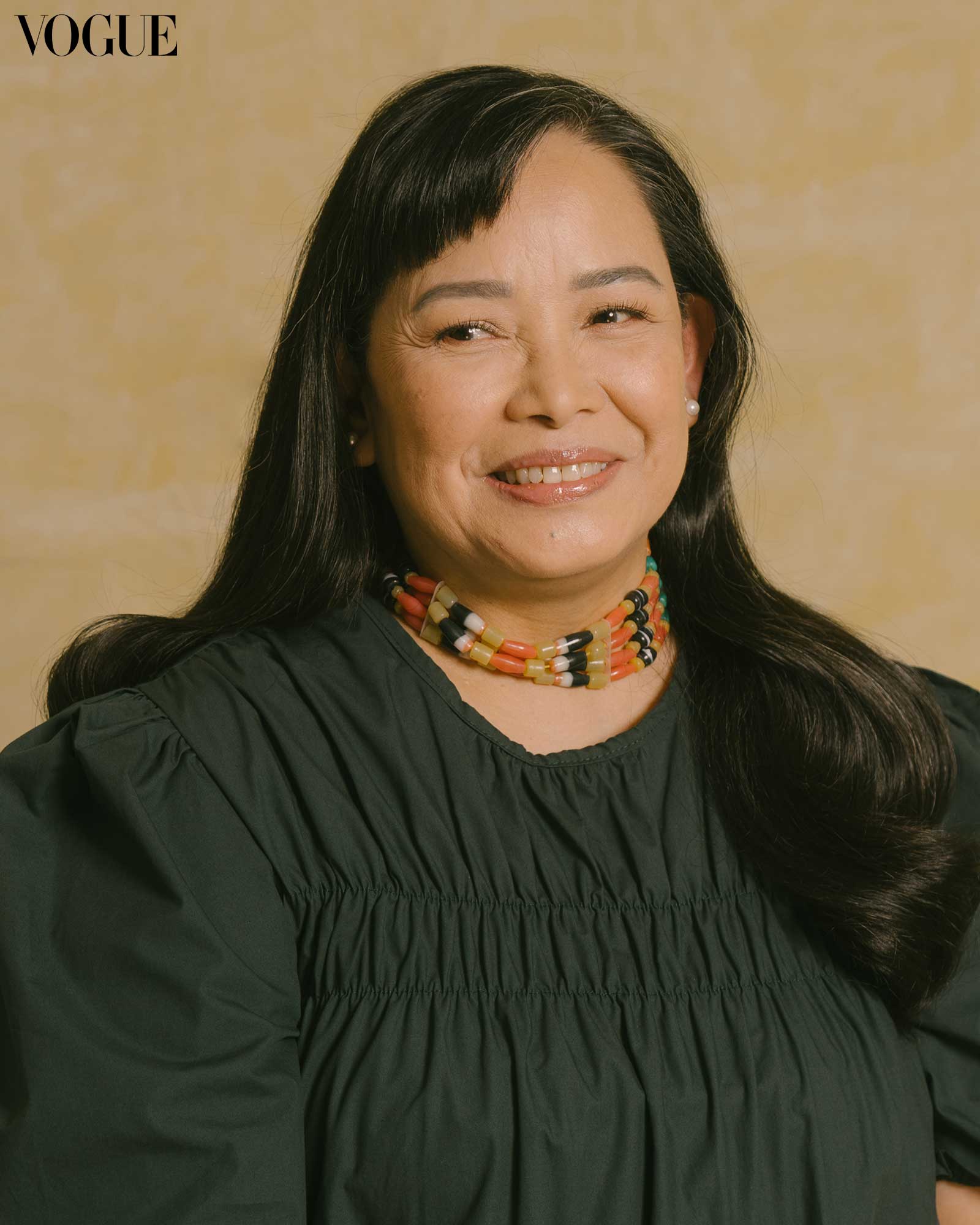
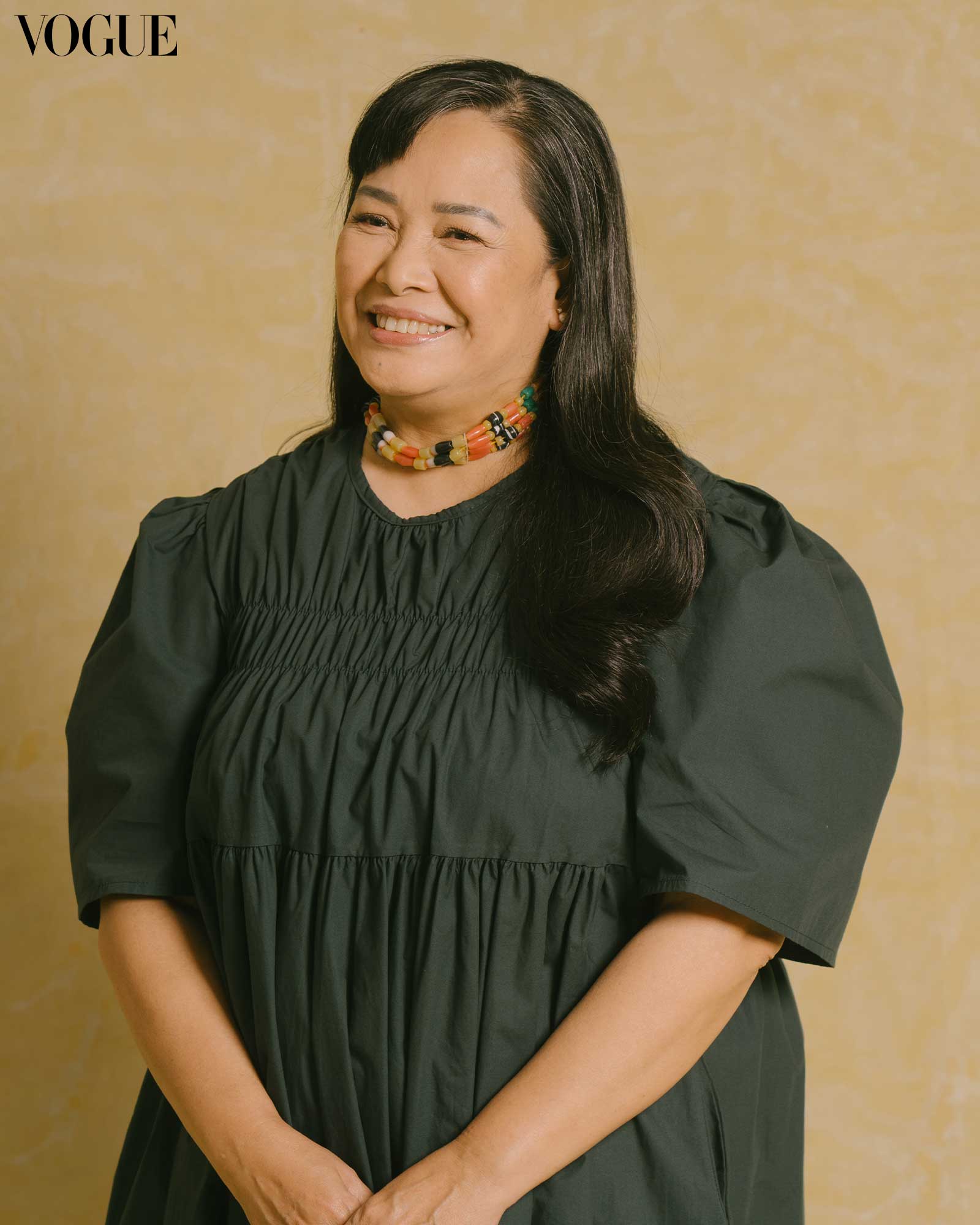
As much as Pantoja would love to supply 50 or 20 tons of coffee beans overseas, there are still plenty of challenges to be overcome by the enterprise. “The farmers have their trees, but they don’t have the money to buy equipment. We need the government and other NGOs to participate in this so that they can supply some equipment to the cluster communities we have created,” she says. To address this need, Pantoja is lobbying for the passage of the Poverty Reduction through Social Entrepreneurship (PRESENT) Bill, which will “enable the creation and strengthening of social enterprises as transformational partners of the poor and marginalized.”
For Pantoja, support from the government is not the only thing that coffee farmers need. “What I want is for most Filipinos to really love our local products. Because we are bombarded with international products and most of us have a colonized mentality,” she says. She speaks of future projects that she hopes to launch: more coffee carts, shops, training programs, and education for communities. Slowly but surely, Pantoja’s efforts are changing lives, one cup of coffee at a time.
Visit vogue.ph everyday this month for daily features on inspiring women, as nominated by the people whose lives they’ve changed.
BY DAPHNE SAGUN. Photography: Kim Santos. Styling: MJ Benitez. Digital Editor: Andrea Ang. Makeup: Apple Fara-on. Hair: Patty Inojales. Producers: Bianca Zaragoza and Daphne Sagun. Set designer: Andrea Ang. Styling assistants: Teresita Gabat, Jia Torrato, Chelsea Sarabia. Makeup assistants: Jane Mission, John Glen Aquino. Hair assistant: Emma Hernandez. Production assistant: Patti Co
- Raising Hope: Redefining Style with Women Fashion Changemakers
- Raising Hope: How Maiki Oreta Is Raising The Next Generation Of Filipino Business Leaders Through Kiddo-preneur
- Raising Hope: Dr. Evelyn Mae Tecson-Mendoza, The Scientist Improving Indigenous Philippine Food Crops
- Raising Hope: Meet Rina Ortiz, The Filipina Who Never Tires of Rescuing Stray Animals
